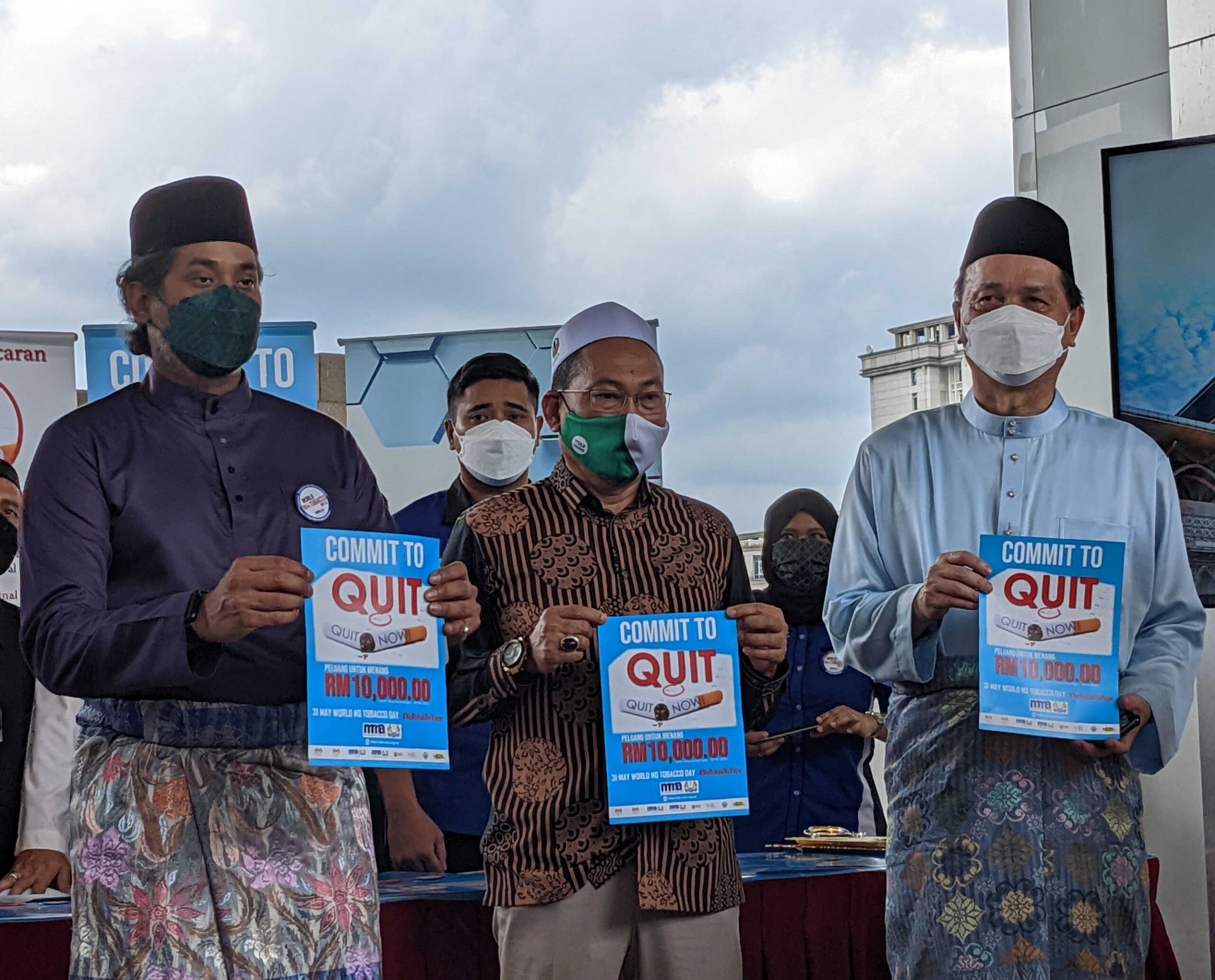KUALA LUMPUR, April 22 – The Ministry of Health (MOH) today launched a stop-smoking programme for 12 mosques in the federal territory, with religious authorities also offering financial aid to help low-income smokers quit.
Health Minister Khairy Jamaluddin said in a speech at the launch of the mosque mQuit programme at Sultan Mizan Zainal Abidin Mosque in Putrajaya that the quit-smoking initiative at Muslim places of worship, which started last April 8, has been conducted during Friday prayers during the month of Ramadan and will continue every Friday after.
MOH has trained volunteers from the Pemadam group of former drug users to provide basic interventions, called Rakan Nasihat Komuniti (RNK), for those who want to quit smoking.
These Pemadam volunteers have been running the community quit-smoking programme every Friday across 12 mosques under the purview of the Malaysia Islamic Development Department (Jakim) and the Federal Territory Islamic Religious Department (Jawi).
“We hope that more mosques throughout Malaysia will be able to run the same programme,” Khairy said in his speech.
He also announced a strategic partnership between the Federal Territory Islamic Religious Council (MAIWP), MOH, Jakim, and Jawi, where MAIWP has agreed to provide financial aid to help the bottom 40 per cent (B40) and hardcore poor to quit smoking.
Based on statistics that Khairy shared of the mosque mQuit programme that began on April 8, a total of 41 individuals have registered to participate in the programme, including 12 smokers.
On MOH’s JomQuit programme, 214,000 visitors visited the site from April 2021 to April 2022. There are 266 providers of stop-smoking services in the country with 5,175 registered clients.
MOH’s National Strategic Plan for Tobacco Control 2015-2020 targets to reduce the national prevalence of smoking to 15 per cent by 2025 and below 5 per cent by 2040.
According to the National Health and Morbidity Survey 2019, about 21.3 per cent of the Malaysian population presently smoke, or 4.9 million current smokers aged 15 years and older.
Smoking is predominantly a male problem in Malaysia, with about 40.5 per cent prevalence among men compared to 1 per cent among women. Some 23 per cent of Malays currently smoke.
“To resolve the issue and problem of abuse of smoking products, especially among children and teenagers, legislation will be tightened through a new Tobacco and Smoking Control Act that, God willing, will be tabled in Parliament this July,” Khairy said.
“The draft bill contains a provision for a generational endgame that aims to protect the generations born from 2005 onwards from the dangerous attraction and threat of smoking products.”
The government’s proposed cohort smoking ban aims to prohibit the sale of cigarettes, tobacco and vaping products to anyone born from January 1, 2005, which means that people turning 18 next year – the current legal age for smoking – will not be able to legally buy cigarettes or vape ever in their lifetime.








